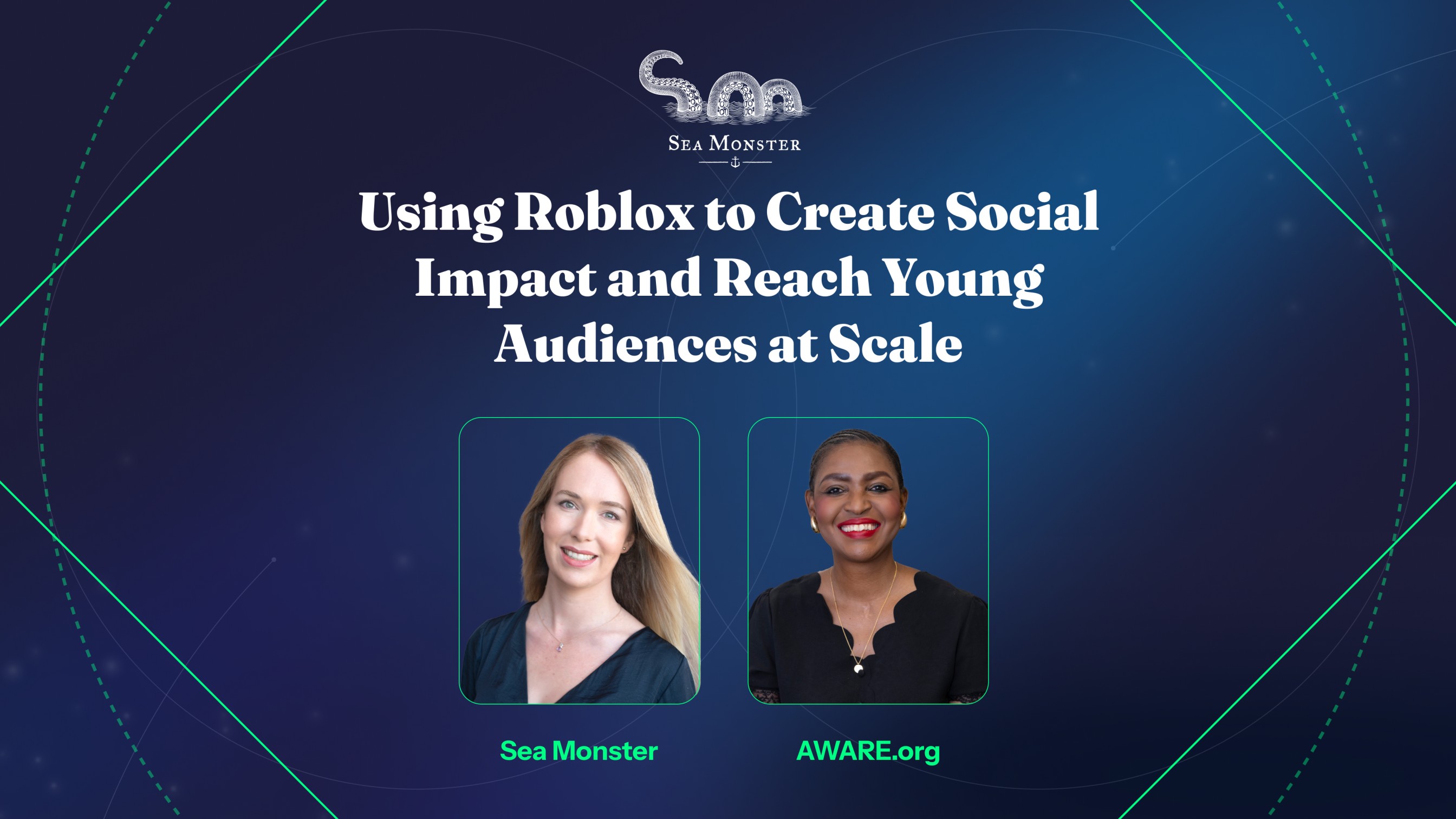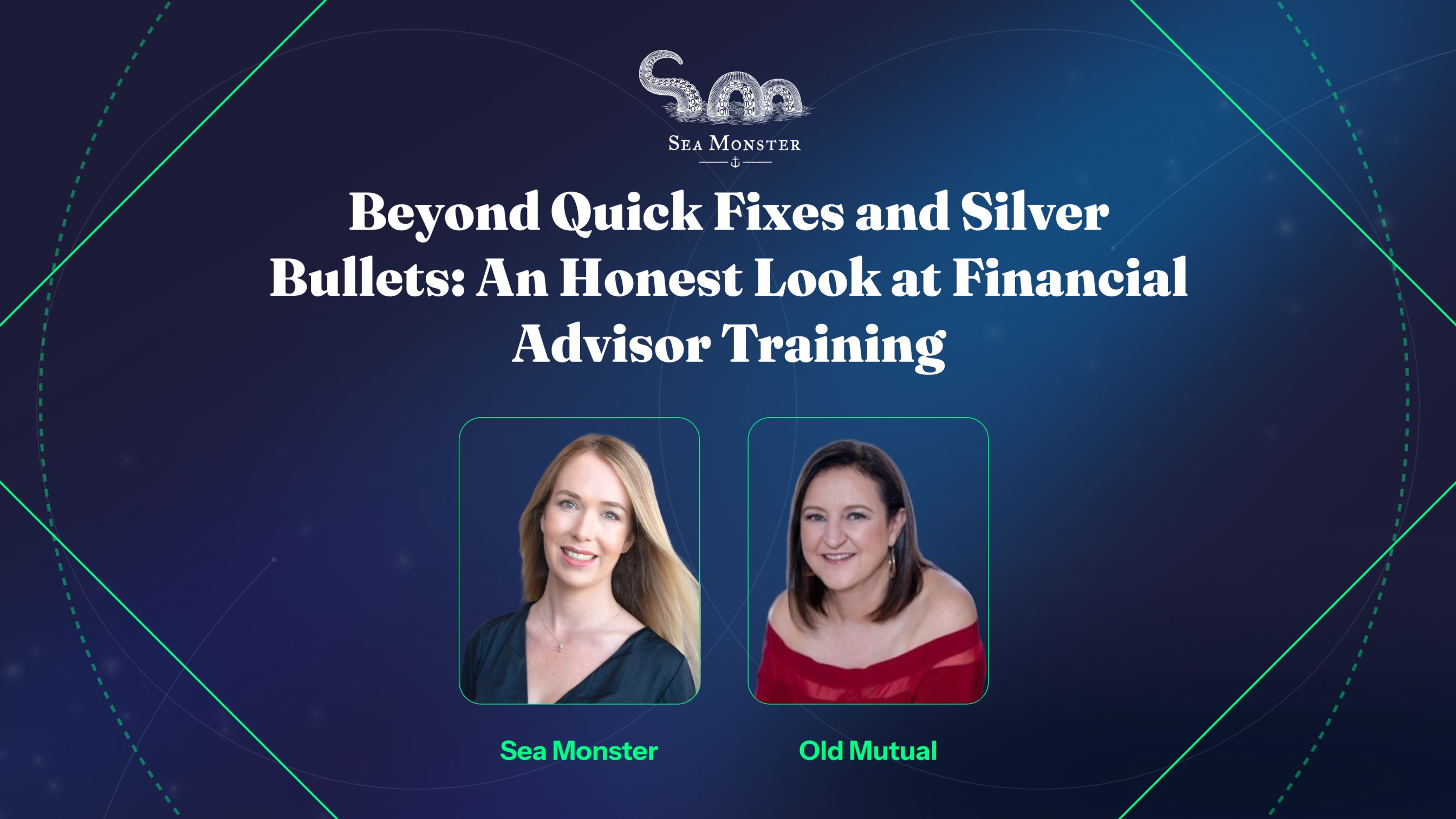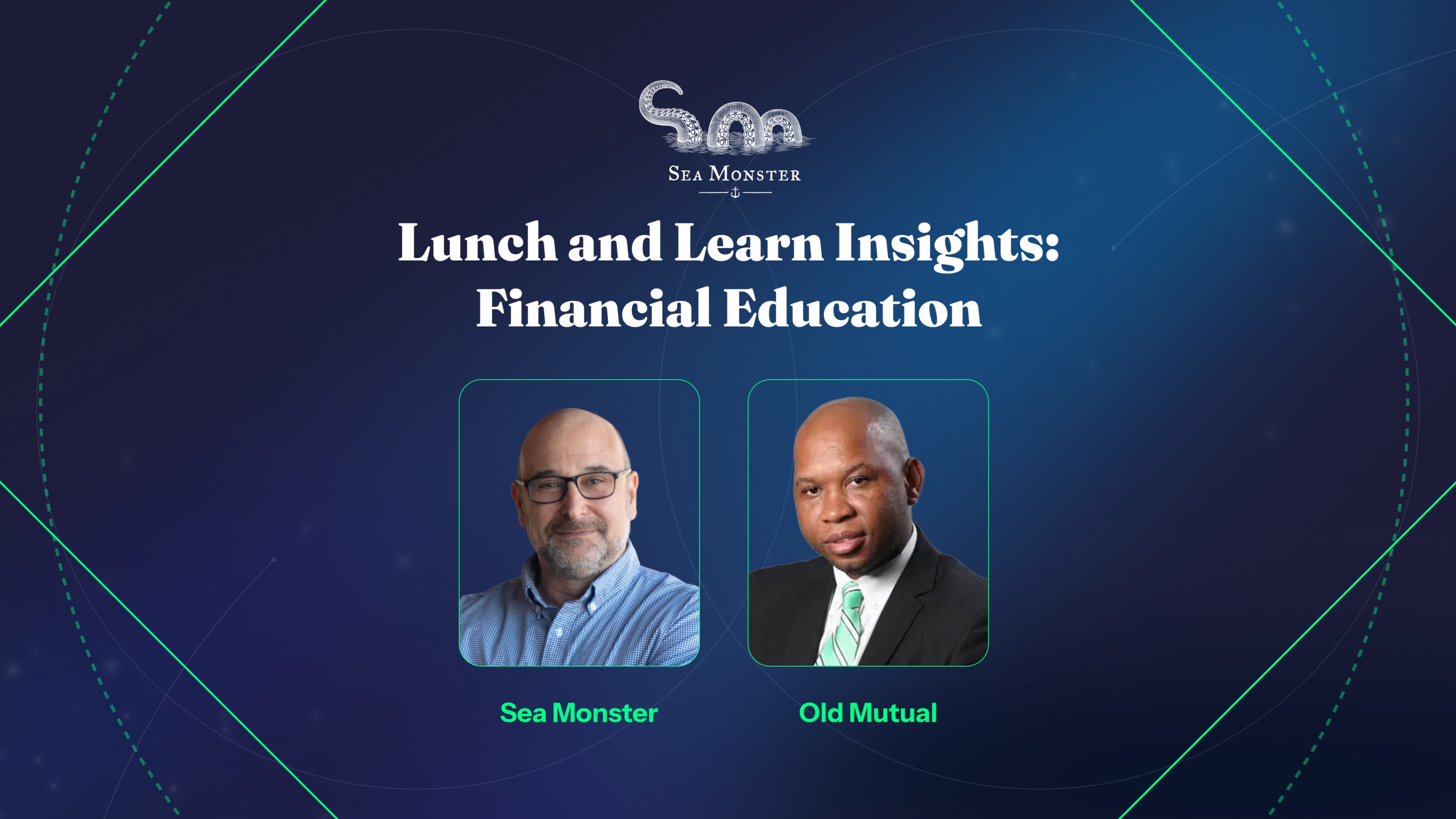Africa has the world's youngest population, yet over 60% of South African youth face unemployment – a tragedy unfolding on our watch. This August, we hosted a lunch and learn session with Nontando Mthethwa (Head of Programs) and Charlene Duncan (Head of Public Affairs and Communications) from the Allan Gray Orbis Foundation, revealing how their award-winning entrepreneurship game, created in partnership with Sea Monster, is tackling this crisis head-on. Fresh from winning a number of international awards, their insights challenge everything we think we know about teaching entrepreneurship, building sustainable partnerships, and why sometimes the most powerful solutions happen below the radar.
Behind the crisis
Let's start with the uncomfortable truth: Africa has the youngest population in the world, but for far too many young people, the traditional pathway from school to employment simply doesn't exist.
The statistics are staggering. Over 60% of South African youth are unemployed, and across the continent, the numbers tell a similar story. So what do we do about it?
The plan B problem
The crisis runs deeper than just unemployment numbers. There's a fundamental cultural problem that's been holding back an entire generation.
"Too often, entrepreneurship is seen as a plan B. Something you turn to when nothing else works. It's never the first option. I've never, ever heard anyone say “entrepreneurship is my career plan”."
– Charlene Duncan, Head of Public Affairs and Communications, Allan Gray Orbis Foundation
This mindset shift represents what Duncan calls a tragedy unfolding before our eyes: "It's almost as if we lose the potential before we even begin."
When an entire generation views entrepreneurship as failure rather than opportunity, we're not just fighting unemployment – we're fighting a fundamental belief system about what's possible.
When traditional education fails
The challenge facing educators is profound: how do you teach entrepreneurship?
"It’s possible to teach entrepreneurship but you can't teach entrepreneurship the way you teach maths or the way you teach history. It's not a traditional way of translating or relaying skills. It has to be lived."
– Charlene Duncan
Traditional education focuses heavily on theory, but entrepreneurship is fundamentally about lived experiences. It requires a completely different approach – one that's practical, engaging, and allows students to "touch and feel and smile," as Duncan describes it.
This insight led the Allan Gray Orbis Foundation to explore gamification as a solution - the Allan Gray Entrepreneurship Challenge (AGEC).
As Nontando Mthethwa, Head of Programs at the Foundation, explains: "It creates a safe space for kids to play around, to try new things that they wouldn't on a normal basis. It's less intimidating, and also allows them to be uncomfortable in terms of whether they fail."
The game-changer approach
The Allan Gray Entrepreneurship Challenge didn't emerge from a marketing department or as a one-off campaign. It arose from a systematic problem identified by schools themselves.
Schools were telling the Foundation: "We'd love to support you in recruiting youth with potential. However, the challenge that exists is that by the time you come, we haven't had a chance to proficiently explain what entrepreneurship is about and showcase it to our kids."
The solution was elegant: create an engaging tool that schools could use in their own context (ie. the classroom) that would get students excited about entrepreneurship before formal recruitment even began.
The game itself is remarkably sophisticated while remaining accessible. Students run virtual businesses, making real-world decisions about staffing, marketing, pricing, and ethical sourcing.
The success and popularity of this approach is clear with the AGEC game generating over 300,000 plays this year alone.
Building sustainable foundations
What sets this initiative apart is its systematic approach to building sustainable educational infrastructure. The Foundation didn't just create a game and hope for adoption – they built comprehensive partnerships with the Department of Basic Education and teacher unions.
Mthethwa emphasises the importance of this foundation-building: "We provide training to teachers so that one, they understand the basic concept of entrepreneurship, but two, then understand how better to support their learners in the classroom."
The approach is multi-pronged, including:
- Teacher training sessions where educators play the game themselves
- Lesson plans aligned with Department of Education curriculum statements
- Integration with existing subjects like EMS, Life Orientation, mathematics, and accounting
This comprehensive support system ensures the initiative isn't just a "once-off thing where they play the game perhaps for a month... and they don't come back," but rather a solution that creates lasting change in how entrepreneurship education is delivered at scale across Southern Africa.
The ecosystem revolution
The Allan Gray Entrepreneurship Challenge isn't a standalone program – it's part of a comprehensive ecosystem spanning from Grade 6 through postgraduate studies and into professional life.
The Foundation operates:
- High school scholarship programs with entrepreneurship curriculum
- University fellowship programs
- Postgraduate fellowships (currently piloting with 30 individuals)
- Alumni association providing ongoing support
Currently, over 120 university students in their programs have established businesses while still studying, demonstrating that the entrepreneurial mindset can be activated much earlier than traditionally thought.
But the Foundation recognizes the scale of the challenge requires collaboration. As Mthethwa explains: "No single organisation can solve issues of youth unemployment on its own... we'd like to explore opportunities around how we can maximize and leverage the lessons that we've learned with like-minded organisations."
What's next?
The success of the Allan Gray Entrepreneurship Challenge reveals something profound about the potential for African-led solutions to global challenges. As our CEO, Glenn Gillis noted, "So often we look outside of our country and our continent for solutions. And the commitment that Allan Gray has shown to this continent, to these types of initiatives, I think speaks volumes for why you need a values-based approach."
The model is now ripe for scaling and adaptation across different sectors and geographies. The Foundation is actively seeking partnerships with organisations that share their vision of "entrepreneurship for human rights" – the belief that entrepreneurial thinking opens up new ways of problem-solving regardless of career path.
The approach has applications far beyond traditional entrepreneurship education. As Mthethwa points out: "If you've got a cabinet that is entrepreneurial perhaps some of South Africa's issues can be addressed a bit more efficiently and faster."
The gaming approach to education isn't just about making learning fun, it's about creating systematic ways for people to develop resilience, creative problem-solving, and collaborative skills through structured failure and iterative improvement.
In a world where traditional career paths are disappearing and new challenges require innovative solutions, the AGEC model offers a roadmap for building human capacity at scale.
By meeting young people where they are – in play – and giving them tools to systematically develop entrepreneurial mindsets, we're not just fighting unemployment statistics. We're setting tomorrow's history into motion.
For more information on the AGEC game, check out our case study here.
To watch the full conversation, check it out on YouTube.
Do you want to explore how games and interactive experiences can transform your organisation's approach to education and skills development?
Get in touch with Sea Monster today to discover how strategic gamification can help you build the capable, resilient, and innovative teams your organisation needs for the future!


.svg)
.svg)






.gif)
